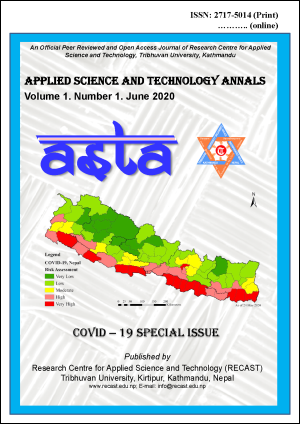Contextual learning: rethinking education for Nepal in the wake of COVID-19 crisis
DOI:
https://doi.org/10.3126/asta.v1i1.30281Keywords:
Contectual learning, COVID-19, Education in Nepal, rethinking educationAbstract
COVID-19 lockdown revealed – among other aspects, shortcomings in educational thinking and processes in countries like Nepal. Apart from the surge in exploring online teaching and learning opportunities, this crisis also paved way for rethinking the prevalent education system. As with a 2016 report from Massachusetts Institute of Technology, this inclination towards new avenues of educational tools provides a context to rethink education because technology alone cannot enable education. Fundamentally educational processes need to respond to specific contexts by anchoring itself to the context. Drawing upon alternative models of education, this paper suggests a contextual approach to learning with collaborative process and learner-centric pedagogy. The suggestion is based on the authors’ observations and experience in early education in general, but reflecting on the family experience of relevance of ‘contextual education’ approach in the times of COVID-19 crisis in particular. The contextual learning situates a learner – with a sense of freedom and responsibility, as the core driver of education, while other stakeholders (parents or teachers) facilitate the learning process by adapting to the interests and initiatives of the learner. This calls for a shift in our thinking about education – what it is, and what it should achieve, as well as democratizing and decentralizing the educational processes.
Downloads
Downloads
Published
How to Cite
Issue
Section
License
© Research Centre for Applied Science and Technology (RECAST)

